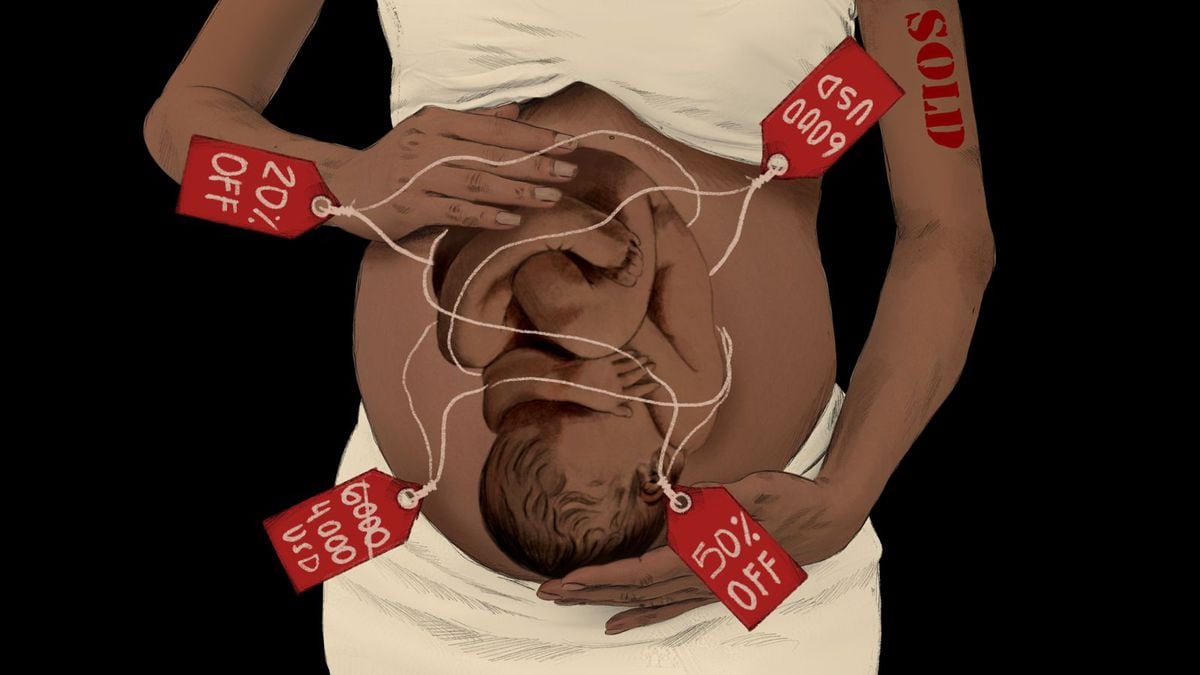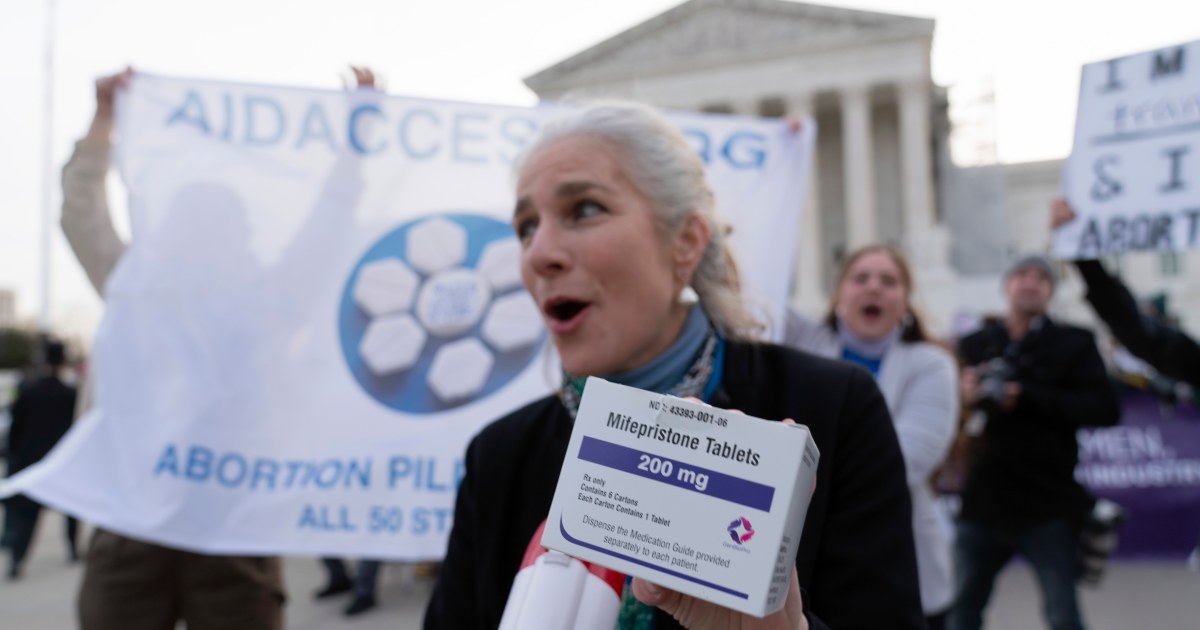Feminist activists celebrate the six months of the decriminalization of abortion up to 24 weeks of gestation.
(Credit: Nathaly Triana/CNN)
(CNN Spanish) --
In February 2022, Colombia decriminalized abortion up to 24 weeks of gestation and became a benchmark for Latin America in terms of the protection of sexual and reproductive rights.
However, women, girls and pregnant people continue to face barriers in accessing this health service in the country.
What obstacles are there to abortion in Colombia despite the fact that the right exists?
“If I am pregnant, I want to have a voluntary termination of pregnancy (IVE).
I don't want to be a mom, I'm not ready for that."
That is what Kelly, a young Colombian woman whose name has been changed to protect her identity, told her doctor, who ordered a blood pregnancy test and guaranteed that to access an abortion that was the only requirement.
However, that was the start of a grueling journey in which she says she faced multiple obstacles.
In the first hospital he went to, he says, they demanded unnecessary documents and refused to provide him with information about the process he had to follow.
In another entity, his medical appointments were repeatedly postponed and they even assured that there were no doctors to perform an IVE.
In addition, he assures that they told him that in case of carrying out the procedure they would not give him medical disability.
A series of barriers that not only unjustifiably delayed their access to abortion, but also evidence the apparent ignorance of the legal framework by some members of the health personnel.
Feminist activists celebrate the six months of the decriminalization of abortion up to 24 weeks of gestation.
(Credit: Nathaly Triana/CNN)
In Colombia, since February 21, after a historic ruling by the Constitutional Court, you can abort up to 24 weeks of gestation, according to your own reasons and without being considered a crime.
After this period, it is legal in three circumstances: when the woman's life or health is at risk, if the fetus has malformations that make it unviable, or when the pregnancy is the product of rape or incest.
“I was one of those who said: How are they going to approve an abortion until such an advanced gestational age?
But now I understand, after seeing what the health system is like in Colombia, especially in departments like this one,” says Kelly*, who lives in Caquetá, a department in the southeastern part of the country, where 87.5% of the municipalities has low access to health services, according to the National Health Observatory.
advertising
Kelly* requested an abortion at three weeks' gestation and finally had it when she was ten weeks and three days old.
She was given medication and then they performed a uterine curettage.
A process that took about 13 hours in total, about which she points out that the doctors did not provide her with clear information, and in which she faced discriminatory treatment by health personnel.
“When I woke up from anesthesia, they told me I could go.
I told them it was midnight and they let me sleep on a stretcher, in a corridor (...) When I left there, all I wanted was to go home and rest.
I didn't really think if the process had been good or bad, I just felt peace that it was all over at last,” she says.
CNN has contacted the Ministry of Health and the Colombian Federation of Obstetrics and Gynecology for comment on cases similar to Kelly's and is awaiting a response.
In these countries abortion is legal (and in these others it is not allowed under any circumstances)
Abortion in Colombia in figures
The situation of Kelly* is that of dozens of women in Colombia who, despite the compulsory nature of the Court's ruling, cannot access an abortion in a timely manner.
Between February 22 and May 31, 2022, the Roundtable for Women's Life and Health, a feminist collective that defends women's sexual and reproductive rights, legally accompanied 76 women who faced barriers to access the IVE.
75% of the cases correspond to women who were in the first 24 weeks of gestation.
An important figure if one takes into account that the gestational age limit was key in the debate on the decriminalization of abortion in Colombia.
“Most women interrupt their pregnancy in the first weeks of pregnancy, but there are between 6 and 8% who are in a situation of greater vulnerability, and take time to realize their pregnancy status or live in an environment of violence. that makes it difficult for them to go out and look for the service,” says Dr. Ana Cristina González, a doctor and one of the pioneers of the Just Cause movement, which promotes the elimination of the crime of abortion from the Colombian Penal Code.
Due to this vulnerability, "it is important that health institutions understand that the early termination of a pregnancy depends on the existence of quality, respectful and timely services," she adds.
(Credit: Nathaly Triana/CNN)
However, despite the fact that access barriers persist, compared to previous years, according to a report on the implementation of the sentence in the first 100 days, more patients have financed their IVE through the national health system.
This represents an important change because it shows that more women can access safe abortion, including those who are economically disadvantaged.
Aborting in Colombia through a private entity can cost approximately between 360,000 and 990,000 Colombian pesos, that is, between US$1 and US$223, according to data from the Oriéntame Foundation, which offers sexual and reproductive health services.
A high figure, if you take into account that the current minimum wage is 1,000,000 pesos, about US $225 at the current exchange rate, according to the Ministry of Labor.
In addition, the balance of La Mesa and the Oriéntame Foundation suggests that pregnant women and people feel less fear of being persecuted or condemned for having an abortion.
Since 2006, when abortion was decriminalized for the first time, around 400 cases of criminalization per year and 346 convictions have been registered, according to an investigation that analyzes data provided by the Attorney General's Office.
81.1% of convictions are for consensual abortion and only 2.9% for abortions without consent, despite the fact that women fully identify their aggressors.
The challenges
Colombia is the country with the most extensive abortion regulation model in Latin America, followed by Argentina, which sets the limit at 14 weeks of gestation, and Uruguay and Cuba, which set the limit at 12 weeks.
However, the organizations point out that the Colombian government is in debt with the implementation of the ruling and has the challenge of implementing a comprehensive public policy that guarantees the rights of women and pregnant people.
The government of Gustavo Petro has repeatedly expressed its commitment to the implementation of the ruling and has even asked the high court to deny lawsuits that seek to reopen the discussion on the decriminalization of abortion.
In addition, the Ministry of Health has indicated that it is working on the construction of a reform project that includes health providers, where the majority of barriers to accessing abortion are present.
The current Minister of Health, Carolina Corcho, when she served as vice president of the Colombian Medical Federation, described the Court's decision as an advance for removing "the issue of women's sexual and reproductive rights from the penal and criminal sphere and introducing it in the field of public health”.
ANALYSIS |
America's chaotic new reality on abortion takes shape
abortion






/cloudfront-eu-central-1.images.arcpublishing.com/prisa/L6TCOQ5HGZCWTOW6YNBMMGDKBA.jpg)


